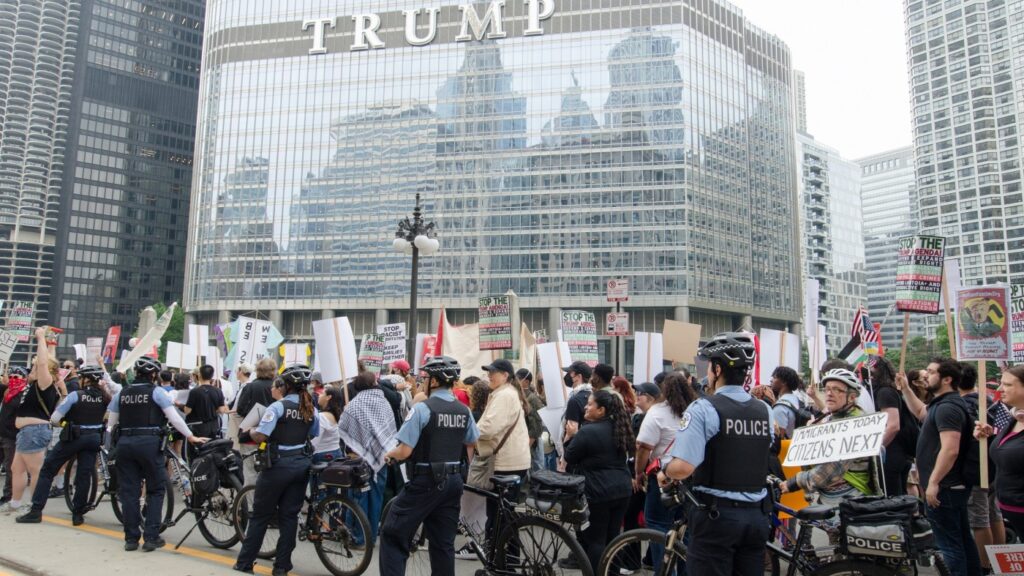In the midst of nationwide protests against Immigration and Customs Enforcement (ICE) raids and President Trump’s immigration policies, a complex narrative on immigration unfolds. Political discourse on immigration extends beyond mere deportation debates to encompass broader issues such as border security and targeted deportations. The Trump administration’s push for aggressive deportation policies, aiming for 3,000 deportations daily, has sparked political opposition, providing Democrats with a unifying stance against Trump’s immigration strategies. However, the Democratic Party faces challenges in articulating a comprehensive vision for immigration policy that resonates with the American public amid shifting public opinion.
Public opinion on immigration policies remains varied, with conflicting polling results reflecting differing sentiments towards Trump’s deportation strategies. While some polls indicate approval of deportation policies, others reveal disapproval, especially in response to ICE workplace raids and protests. Republican members, including Rep. David Valadao and Rep. Tony Gonzales, express concerns about the broadening scope of deportation efforts, advocating for prioritizing the removal of criminal elements over long-standing, law-abiding residents.
The evolving narrative includes a shift in Trump’s rhetoric, acknowledging the impact of aggressive immigration policies on industries reliant on immigrant labor. Despite this, concrete changes in deportation practices are yet to materialize, highlighting the intricate political landscape surrounding immigration policies. For Democrats, the challenge lies in formulating a cohesive and persuasive immigration narrative that effectively counters the Republican stance. The absence of a coherent immigration narrative within the Democratic Party underscores the need for a compelling and affirmative approach to immigration issues to engage and resonate with the American electorate.

